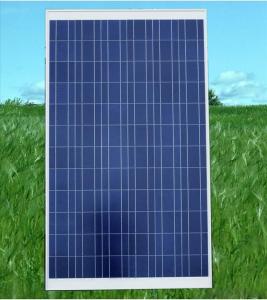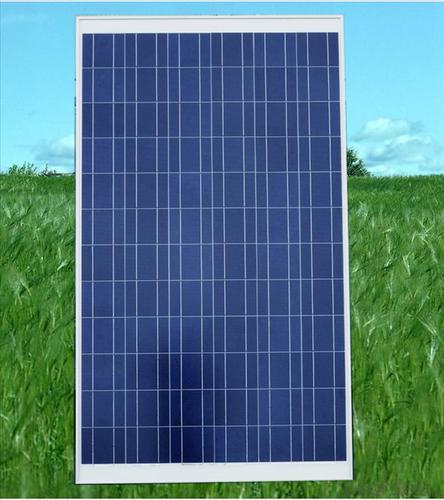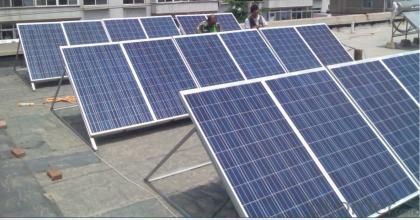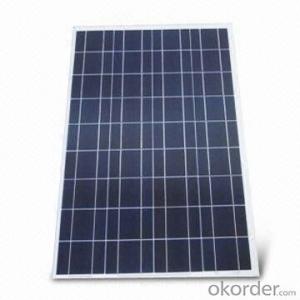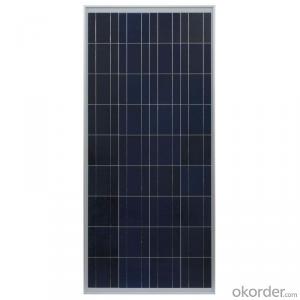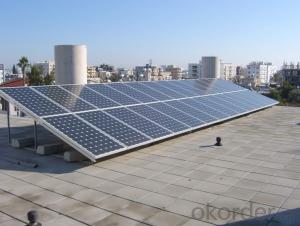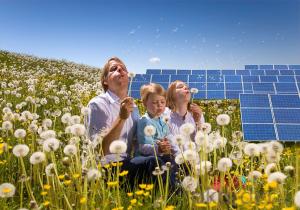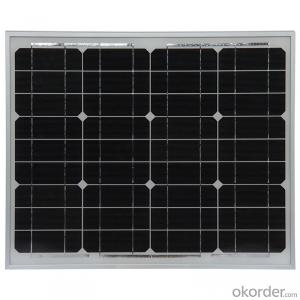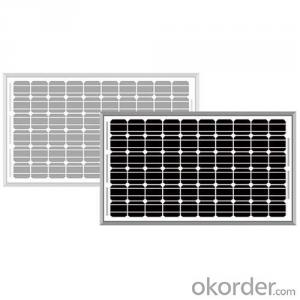300Wp Silicon Polycrystalline Solar Panels for Refrigerator
- Loading Port:
- Shanghai
- Payment Terms:
- TT OR LC
- Min Order Qty:
- 180000 watt
- Supply Capability:
- 10000000 watt/month
OKorder Service Pledge
OKorder Financial Service
You Might Also Like
Specification
Solar cell module production process
The product portfolio of CNBM SOLAR comprises high-quality solar modules in various sizes and designs to suit different deployment needs – from small roof-top systems to commercial and industrial systems to utility-scale photovoltaic power plants. CNBM SOLAR photovoltaic modules and solutions are successfully deployed by satisfied customers in all-sizes projects worldwide.
FAQ:
1. How long will my inquiry get response?
Your inquiry related to our products or prices will be replied within 24 hours.
2. Can I get professional service and suggestion?
Well-trained and experienced staffs to answer all your questions in fluent English.
3. Do you accept OEM or customized design?
OEM & ODM, any your customized lightings we can help you to design and put into product.
4. What if I need specific design?
Distributorship are offered for your unique design and some our current models.
About us
We are a high-tech group wich specializes in solar products design,research, manufacture, sales,solar projects design and installation.
Our national sales service covers seven parts, including northeast, north, east, middle, south, northwest and southwest, international sales covers five continents and over forty countries, including Germany, Italy, Spain, France, America and Brazil etc.
We now provide Polycrystalline Silicon Solar Module;Thin Film Solar Module;Monocrystalline Silicon Solar Module Feature of our product
High conversion efficiency mono/poly-crystalline amorphous silicon solar cells
Modules incorporate high performance bypass diodes to minimize the power drop caused by shading
High transmittance, low-iron tempered glass
High performance EVA resin to prevent destroying and water.
AI frame: without screw, corner connection. 8 holes on the frame can be installed easily
Good performance of preventing from atrocious weather such as wind and hails
Certifications: CE IEC TUV VDE, Class I
10 years 90% output warranty
25 years 80% output warranty
Depends on various demands from different customers, CNBM could supply any kinds of service to meet you, please feel free to contact us at any time.
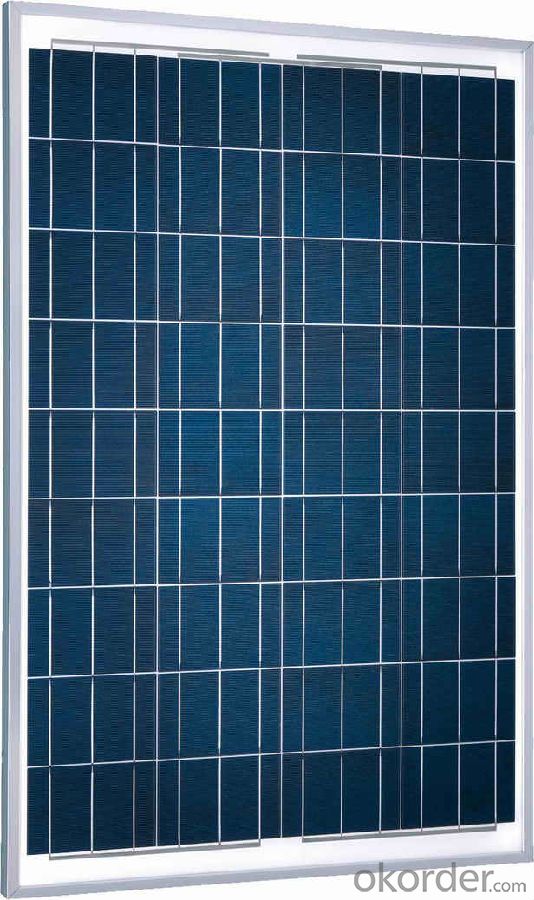
With the company crossing the threshold of 1 GW installations in 2013 and with 700 MW installed in 2014 alone, the photovoltaic modules from CNBM SOLAR are successfully used by satisfied customers in a large number of projects all around the world – from small residential systems up to utility scale systems. On this page you will find a selection of projects in the residential, industrial / commercial and utility segments featuring CNBM SOLAR high quality mono- and polycrystalline solar modules, deployed in different countries worldwide.
- Q: Hey i am going to build a scale model house and demonstrate how you would use solar panels to provide energy. I am thinking of buying some kit solar panels and wiring up some lights to show how they power the home. Also i might hook up a battery in the house to show how you can store the energy. I might also have a large battery hooked up outside the house to represent a power plant that could provide emergency power. Any ideas or comments would be great. Thanks
- Build okorder /
- Q: i check the diodes in the backside of solar panels it reads out to be 0.433 each give me the same result but i was amazed when i check out the last two one which on clamp meter screen give me ''0L'' what this means? is that diode have malfunctions??is this reasons that the output of solar has been decreased?
- First of all, make sure that you are taking readings in the dark (with the solar panel indoors and covered). 0.433 is a reasonable forward voltage for a Schottky diode. Ideally, it diode should read open one way (possibly OL for your meter), and 0.4 the other way. If it's reading OL both ways, the diode is bad. You can either unsolder it or cut it out and verify that it is bad.
- Q: I am trying to built a circuit that will power two USB ports (both 5V and 0.5 amps) from the output of a solar panel that produces 20V at 0.2 amps. I have a voltage regulator that runs at 5v and 0.5 amps but I can't figure out the best way to boost the current up to 0.5 amps before I incorporate the voltage regulators.
- The previous answer about wattage is correct, so this is your first problem. Try increasing the number of solar panels by connecting them in parallel. To answer your question about increasing current, a voltage regulator wastes energy to regulate voltage. You need somthing that is not so wasteful, and that is a DC-DC converter. You will need to buy a 20V-5V model. this will give you less voltage but more current than you origionally had with your solar panel. You can alter voltage and current capacity, but you cant increase power (watts) with a DC-DC converter.
- Q: Can solar panels be used in urban areas with limited space?
- Yes, solar panels can be used in urban areas with limited space. There are various options available such as rooftop installations, vertical panels, and solar canopies. These solutions maximize the use of limited space and allow urban areas to harness solar energy efficiently.
- Q: Can solar panels be used in areas with high levels of humidity?
- Yes, solar panels can still be used in areas with high levels of humidity. While high humidity can affect the efficiency of solar panels to some extent, they are designed to withstand various weather conditions, including humidity. However, it is important to note that regular maintenance and cleaning may be required to ensure optimal performance in such environments.
- Q: Can solar panels be installed on a rented property?
- Yes, solar panels can be installed on a rented property. However, it is important to check with the property owner or landlord before proceeding with the installation. Some landlords may have restrictions or specific guidelines for installing solar panels, while others may require written permission. It is recommended to discuss the matter with the property owner and potentially reach a mutually beneficial agreement.
- Q: My family has been interested in solar technology for a long time. I want to know how to save money so I can get as many solar panels as possible. I know the government has different discounts/ grants, and there may be tax incentives. I am not looking to sell energy to the energy company I want to use the energy directly.
- Go okorder / and click on your particular state. In the US today, panels are a money saver, if that, but not a money maker. Don't expect to get rich installing panels. A right-sized system will save the most money; more panels are not necessarily better. The arrangement you describe sounds like grid-tied, net metered solar. Try getting a free quote from a professional installer to see what size system would be appropriate, and how much it would cost.
- Q: i need to make a mini-solar car which shouldn't cost much. it's for my science project. for now, i just found out how to make a solar panel using copper oxide, but it does not generate enough power to power up the engine of the toy car [ the small engine they used in the toys, like from TAMIA]
- try adding more solar panels to your car, what if you take the solar panels out of 2 or 3 calulators , add them, then use some tiny mirrors to help draw more light into the panels,.--------------------------------... solar cell (or a photovoltaic cell) is a device that converts photons from the sun (solar light) into electricity. In general, a solar cell that includes the capacity to capture both solar and nonsolar sources of light (such as photons from incandescent bulbs) is termed a photovoltaic cell. Fundamentally, the device needs to fulfill only two functions: photogeneration of charge carriers (electrons and holes) in a light-absorbing material, and separation of the charge carriers to a conductive contact that will transmit the electricity. This conversion is called the photovoltaic effect, and the field of research related to solar cells is known as photovoltaics. Solar cells have many applications. Historically solar cells have been used in situations where electrical power from the grid is unavailable, such as in remote area power systems, Earth orbiting satellites or space probes , consumer systems, e.g. handheld calculators or wrist watches, remote radiotelephones and water pumping applications. Recently solar cells are particularly used in assemblies of solar modules (photovoltaic arrays) connected to the electricity grid through an inverter, often in combination with a net metering arrangement. Solar cells are regarded as one of the key technologies towards a sustainable energy supply.
- Q: Dear Friends, I am very much worried about Global warming, So to contribute something for reducing Global Warming I have decided to use Solar Panels. Can anybody tell me what is the price of these Solar Panels and why people are not using them when they are environment friendly. What are the Pros and Cons of these Solar Panels?
- Solar panels are not environmentally friendly. They are expensive and inefficient. Dangerous chemicals that never break down in the environment are produced in the manufacture of solar panels. Their environmental footprint is larger on a per kilowatt basis, than conventional modes of electricity generation. And, because of their unreliability, they have to be backed up by conventional sources. Well-intentioned, but gullible, people the world over have convinced themselves that solar power is our salvation. Nothing could be further from the truth. As an example, check out Margaret Wente's recent column in the Globe Mail after Ontario's recent decision to go green. Also check out George Monbiot's critique of the UK experiment.
- Q: What's your opinion on solar power? More specifically, having panels installed on your roof to reduce your electric bill. I'm having a consultation tomorrow to get more details. I live in the SW, so it's always crazy sunny here. I don't know what the cost will be yet. Is it something you'd consider if the situation was right? If not, why?
- Lots of folks are installing them in my neighborhood in the Mid-Atlantic. I'm going to hold off until I can ask my neighbors how much their electric bill has gone down, after they've had the panels for a year or so. I don't see any reason to rush into it. Also, I'm a little concerned about what happens if a leak develops in your roof during or after installation. Who pays to fix that? That, plus the west side of my house faces the street, and I don't think I want my solar panel array to be greeting guests and visitors...I'm just not that in love with the looks (although the shingle- or tile-like versions of panels that Tesla is advertising would not be bad). So the panel installers would have to be satisfied with an east-facing installation on the rear slope of my roof.
Send your message to us
300Wp Silicon Polycrystalline Solar Panels for Refrigerator
- Loading Port:
- Shanghai
- Payment Terms:
- TT OR LC
- Min Order Qty:
- 180000 watt
- Supply Capability:
- 10000000 watt/month
OKorder Service Pledge
OKorder Financial Service
Similar products
Hot products
Hot Searches
